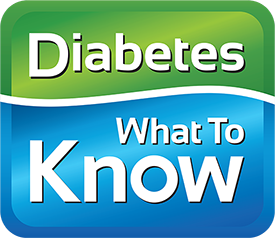By: Madeleine Ortiz
For anyone who’s struggling with emotional eating, there’s good news. There are programs and tools that can really help a person make peace with food. According to Dr. Michael Vallis, registered health psychologist, the answer to emotional eating is finding your internal drivers, or the things inside of you that are pushing you to eat. Internal drivers are different from person to person, but the steps of self-discovery listed below can be used by anyone. Here are the questions Dr. Vallis wants you to ask yourself as you start to heal your emotional eating.
1) What did you eat?
Are you drawn to sugary foods? Savory? Processed? Packaged? Take note of the food that you usually turn to when you are eating out of emotion, and then get honest with yourself. Is this a food that you can keep in your house or your desk at work or is this a food that you should try and avoid being around?
2) When and where are you eating?
Every time you eat in response to an emotion instead of hunger, start judging yourself less and observing yourself more. Write down when (the day of the week and time) that you ate and where you were. Do this for a week or longer. Do you notice a pattern? Perhaps you don’t start overeating until after dinner or maybe work is the main location you find yourself indulging. Take note and think about the adjustments you might make in the future. .
3) Why were you eating?
This might not be as easy of a question to answer as the previous one, but it is extremely important. Ask yourself this question like you would ask a friend, not harshly and accusatory, but with non-judgmental curiosity. Were you sad? Stressed? Tired? Did you wait too long to eat after you were hungry? Write down the way you were feeling when the emotional eating occurred. See if you can find one or two triggers that may cause the majority of your indulgences. Does being around a certain person or in a certain situation trigger feelings of worthlessness or anger or sadness? Eating is your attempt to take care of yourself and it doesn’t happen because you’re stupid or lazy. Knowing what problem you’re trying to solve for yourself will help you find other solutions that don’t involve food.
4) Does your food like you back?
Your relationship with food is like any other relationship: you shouldn’t be investing time and energy into foods that don’t like you back. Dr. Vallis puts it this way: “If you’re not happy with yourself after you eat a particular food, that food does not like you back.” Giving up these foods that make you feel badly might seem difficult at first, and you may always like the idea of them, but eventually you’ll start to want them less. The more you surround yourself with foods that don’t cause issues the easier it will be to stay away from the foods that make you feel bad.
5) What are you willing to work for?
Dig deep and discover what is meaningful to you– not to your parent, or a friend, a neighbor, or an acquaintance on social media. Maybe it’s feeling comfortable on a plane ride, or being able to play with your grandkids, or going to bed at night without “eater’s remorse.” Find what motivates you and write it down. Think about it. Carry a picture of it in your wallet. Overcoming emotional eating can be grueling and difficult work, and having something that is important to you at the forefront of your mind can be helpful when times get tough or when you want to give in to temptation. Know that whatever it is that you want is worth all the effort.
6) How have you been successful in the past?
Chances are this isn’t the first time you’ve tried to conquer a challenging task. Think about other times you have worked through something that wasn’t easy. Remember what helped you be successful before this. Try to recall the feeling that success brought you and tell yourself you deserve to feel that way again… because you do! Use this as a foundation for growth. Build upon your accomplishments a little bit at a time with the confidence that you are heading in the exact direction you want to be.
7) Where did your choices take you today?
At the end of the day reflect upon where your choices took you. Did your choices lead you in the right direction or did they veer you off your path? Be honest, but non-judgmental. Resolve to make more choices tomorrow that will take you where you want to be.
It might seem daunting to dive so deeply into yourself, but Dr. Vallis tells us it’s a change that will “hurt so good.” He gives us the analogy of finding a $100 bill on the sidewalk. The moment after we find the money, it feels painful to turn it in, but at the end of the day we feel much better about doing the right thing. Stick with it. And remember… “Your next choice can always be healthier.”
The medical information on Diabetes – What To Know’s website is provided as an information resource only. The content is not in any way intended to be nor should you rely on it as a substitute for professional medical evaluation, diagnosis, advice and treatment.


